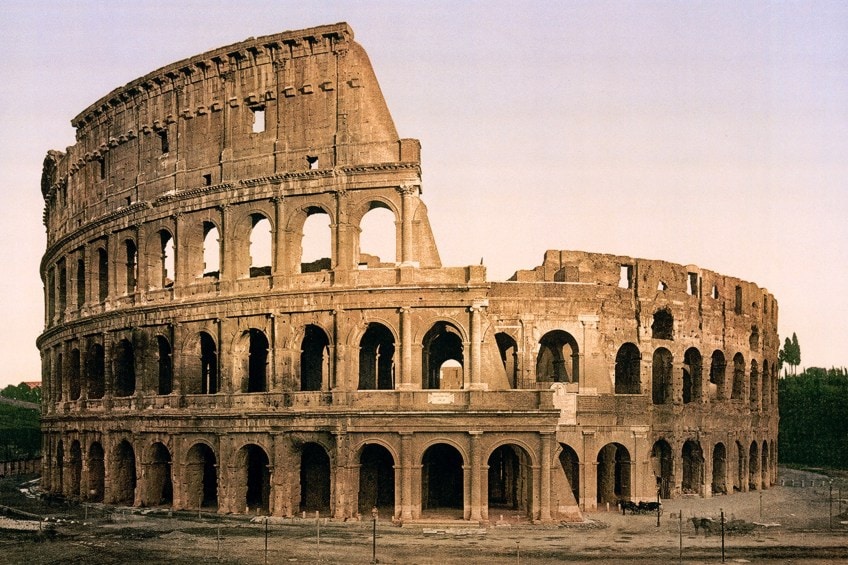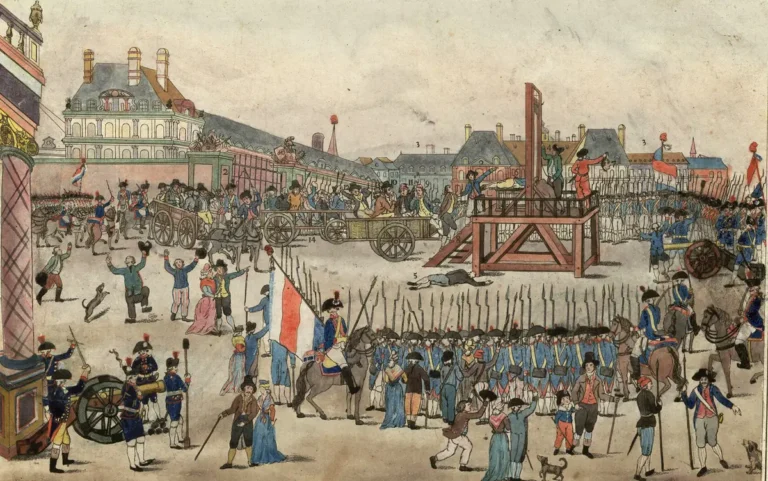Delve into a fascinating journey back in time to unearth the enigmas cloaked in the shrouds of yesteryears. This comprehensive piece throws light on the captivating chronicles of the grand ancient civilizations that once dominated this Earth. With a razor-sharp focus on the awe-inspiring cultural imprints, architectural masterpieces, scientific advancements, and intriguing practices of those times, this informative work provides an insightful peek into the intriguing world of antiquity.
The saga of our ancestors, their ingenious innovations, their cultural richness, their complex social systems, and their momentous rise and fall, all blend seamlessly to weave a tapestry of time that is as compelling as it is complex. In this comprehensive guide, we bring to life the remarkable civilizations that have left an indelible mark on human history. From the ancient Egyptians with their monumental pyramids and cryptic hieroglyphics, to the innovative Greeks and their philosophical prowess, the majestic Romans, the mystical Mayans, and beyond, we cover the length and breadth of human history.
Each paragraph will beckon you to travel back in time, painting a vivid picture of the grandeur that was. Prepare to embark on an exciting exploration into the mysteries of our past that remain to this day. As we unlock the secrets of these civilizations, we provide you with a deeper understanding of human history, where we came from, and how these great ancient civilizations have shaped our world today. So brace yourselves, history enthusiasts, for an intriguing journey into the past that promises to be as enlightening as it is exhilarating. 🕰️🏺🏛️
The Intricacies of the Egyptian Civilization
Let’s start by exploring one of the most remarkable and enduring ancient civilizations—the Egyptians. Flourishing along the fertile banks of the Nile River for over three millennia, Ancient Egypt stands as a monumental testament to human ingenuity, cultural richness, and spiritual depth. Famed for their iconic architectural feats, the Egyptians not only designed and constructed the awe-inspiring pyramids but also developed a highly organized society rooted in religion, science, and art. Their achievements continue to fascinate historians, archaeologists, and travelers from all over the world.
One of the most striking legacies of Ancient Egypt is undoubtedly the pyramids, particularly those at Giza. These colossal structures, built as tombs for pharaohs, are enduring symbols of Egyptian civilization and engineering marvels that continue to baffle modern scholars. The Great Pyramid of Giza, built for Pharaoh Khufu around 2600 BCE, was originally over 146 meters tall and remained the tallest man-made structure on Earth for over 3,800 years. It consists of approximately 2.3 million limestone blocks, each weighing several tons, precisely cut and placed without the aid of modern machinery. The mathematical precision involved, including the near-perfect alignment with the cardinal directions and certain celestial bodies, demonstrates an advanced understanding of astronomy, geometry, and geodesy.
But Egyptian accomplishments extended well beyond architecture. Their society was hierarchically structured and meticulously organized, with a central role given to the pharaoh, believed to be a divine intermediary between the gods and the people. Religion permeated every aspect of life, influencing everything from governance and law to medicine and art. The Egyptians worshipped a vast pantheon of gods and goddesses, each associated with elements of nature and human behavior, and they built elaborate temples to honor them, such as Karnak and Luxor, which still stand today as testaments to their spiritual devotion and artistic grandeur.
One of the keys to unlocking the mysteries of Egyptian culture lies in their unique writing system—hieroglyphs. This intricate script, composed of pictorial symbols, was used in religious texts, official inscriptions, and tomb decorations. The decipherment of hieroglyphs, made possible by the discovery of the Rosetta Stone in 1799, opened a window into Egypt’s complex worldview, revealing details about their mythology, social customs, political history, and technological achievements.
The Egyptians were also pioneers in medicine, agriculture, and mathematics. They practiced surgical techniques, had a deep understanding of herbal medicine, and maintained detailed medical texts like the Ebers Papyrus. Their agricultural success was tied to the predictable flooding of the Nile, which they harnessed through irrigation and farming systems. In mathematics, they understood basic principles of algebra and geometry, which they used in everything from architectural design to land surveying.
In essence, the Egyptian civilization was a beacon of progress and mystery, blending scientific brilliance with spiritual depth. Their enduring legacy, etched in stone and scroll, continues to shape modern understandings of time, knowledge, and humanity itself. As we peel back the layers of their intricate society, we not only gain insights into their world but also discover reflections of our own.
The Egyptian Pyramids: Marvels of Engineering
Constructed around 4,500 years ago, the Egyptian Pyramids continue to confound modern architects and engineers with their sophistication. The largest, known as the Great Pyramid of Giza, consists of approximately 2.3 million stone blocks, each weighing an average of 2.5 to 15 tons. The precise alignment of the pyramids with the cardinal points of the compass and the stellar constellations is indicative of their advanced knowledge of astronomy and geodesy. Additionally, the construction of these structures required extensive planning and accurate execution, further highlighting their advanced mathematical understanding.
Hieroglyphs: The Ancient Egyptian Language
Hieroglyphs, a system of writing using symbols and pictures, is another testament to the complexity of the ancient Egyptian civilization. Deciphering these was a significant step towards understanding their culture, religion, and philosophy.
The Innovations of the Ancient Greek Civilization
Next, we delve into the ancient Greek civilization, a cornerstone of Western culture renowned for its profound and lasting contributions to politics, philosophy, art, literature, and science. Flourishing between the 8th and 4th centuries BCE, the Greeks laid much of the intellectual and institutional groundwork that continues to shape our modern world.
One of their most enduring legacies is the invention of democracy, particularly as practiced in the city-state of Athens. Here, citizens were granted the right to participate directly in the legislative process—a revolutionary concept at the time. While this early form of democracy excluded women, slaves, and non-citizens, it nonetheless established foundational principles of civic participation, political debate, and rule by the people, which would later inspire democratic systems across the globe.
The Greeks also made groundbreaking advances in philosophy, with thinkers like Socrates, Plato, and Aristotle shaping the very way we understand ethics, logic, metaphysics, and political theory. Their dialogues and treatises laid the foundation for Western philosophical thought, influencing generations of scholars and leaders. Concepts such as rational inquiry, empirical observation, and moral reasoning were developed and debated in ancient Greek forums long before becoming cornerstones of modern education and governance.
In the realm of science and mathematics, the Greeks were equally pioneering. Figures such as Pythagoras, Archimedes, Hippocrates, e Euclid made foundational contributions to geometry, physics, medicine, and astronomy. Their methods combined observation with logical deduction, marking the early seeds of the scientific method.
Through their cultural richness, artistic expression, and intellectual daring, the Greeks ignited an intellectual fire that still burns brightly today. Their innovations were not merely momentary achievements but enduring legacies that continue to inspire progress, inquiry, and democratic ideals in the modern era.
Democracy: A Greek Innovation

Arguably, one of the most impactful and enduring innovations of ancient Greece is the concept of democracy—a political system that empowered citizens to actively participate in shaping the decisions that governed their lives. Developed primarily in Athens during the 5th century BCE, this early form of government was revolutionary for its time, standing in stark contrast to the monarchies, oligarchies, and tyrannies that dominated much of the ancient world.
Athenian democracy was built on the principle of direct participation. Eligible citizens—free adult males born in Athens—had the right to gather in public assemblies (the Ekklesia) to debate and vote on matters of policy, law, and war. Key positions within the government were often filled by lottery, emphasizing the belief that all citizens were capable of contributing to public life. The Council of 500 (Boule) handled the administration and prepared legislation, while people’s courts allowed citizens to serve as jurors, ensuring legal disputes were judged by peers rather than elites.
While Athenian democracy was far from inclusive by modern standards—excluding women, slaves, and foreigners—it laid the philosophical and structural foundation for participatory governance. The idea that power should rest with the people rather than a hereditary elite was a radical departure from traditional systems of rule, and it profoundly influenced political thinkers for centuries to come.
Notably, the democratic experiment in Athens was accompanied by vibrant public discourse, where philosophers, orators, and citizens alike engaged in debates about justice, equality, and the role of the individual in society. This civic culture helped cultivate a population that was both politically aware and actively involved in shaping its future.
The legacy of Greek democracy can be seen in modern representative democracies around the world. Concepts such as citizen rights, public debate, rule of law, e majority decision-making all have roots in ancient Greek political thought. By daring to imagine a society governed by its people, the Greeks ignited an enduring vision of governance that continues to shape the world today.
Philosophy and Science: Greek Thought Leaders
The ancient Greeks also made substantial contributions to philosophy and science. Notable philosophers like Socrates, Plato, and Aristotle laid the groundwork for Western philosophy and scientific thinking. They explored concepts like ethics, metaphysics, and logic, which continue to shape modern philosophical thought.
The Roman Civilization: Architectural Marvels and Law
Finally, let’s explore the Roman civilization. Its influence is evident in modern Western culture, particularly in architecture and law.

Roman Architecture: The Colosseum and The Aqueducts
The Romans are known for their architectural prowess. The Colosseum, a magnificent amphitheater, and the aqueducts, which supplied water across vast distances, are exemplary feats. These structures utilized the arch, a revolutionary architectural element at the time.
Roman Law: An Influence on Modern Legal Systems
Roman law, with its emphasis on codified rules and principles, greatly influenced the legal systems of many Western countries. It introduced concepts like legal rights, justice, and the importance of written laws.
Unraveling the Mysteries of These Ancient Civilizations
Archaeology: A Window to the Past
Archaeology plays a vital role in unraveling the mysteries of these ancient civilizations. Excavations reveal hidden artifacts, which offer insights into their cultures, traditions, and technological advancements.
Modern Technology: Aiding Archaeological Discoveries
Modern technology, like ground-penetrating radar and LiDAR (Light Detection and Ranging), have revolutionized archaeological studies. These tools aid in locating buried structures and artifacts, enhancing our understanding of these ancient civilizations.

Understanding the Past to Inform the Future
Understanding the achievements and mistakes of these ancient civilizations can help us shape a better future. Their technological advancements, socio-political structures, and cultural norms continue to influence us, even thousands of years later.
In conclusion, these ancient civilizations, with their remarkable achievements and intriguing mysteries, continue to fascinate us. Unraveling these mysteries allows us to appreciate the complexity of their cultures, marvel at their technological prowess, and draw lessons for our future.
Conclusão
In conclusion, the exploration of great ancient civilizations provides an insightful journey into our past. The mesmerizing mysteries and incredible feats achieved by our ancestors offer a rich tapestry of human history that continues to captivate and inspire us today. Each civilization, from the Egyptians, Greeks, Romans to the Mayans and Incas, shaped our world in their unique ways, leaving behind legacies that are still palpable in contemporary societies.
Unraveling these mysteries not only quenches our historical curiosity but also offers lessons about resilience, innovation, culture, and governance that are relevant even today. They serve as tangible links to our past, painting a vivid picture of our ancestors’ triumphs, failures, hopes, and fears. Understanding these civilizations also helps us appreciate the diversity and richness of human culture and progress.
Through advanced archaeological methods and technologies, we have just begun to scratch the surface of these ancient wonders. There is still much to learn and discover. As we continue to delve deeper into the enigmatic labyrinth of our past, we should anticipate more revelations, each more fascinating than the last. The wonders of great ancient civilizations remind us that history is not merely a subject but a guide to understanding ourselves and our place in the world.



